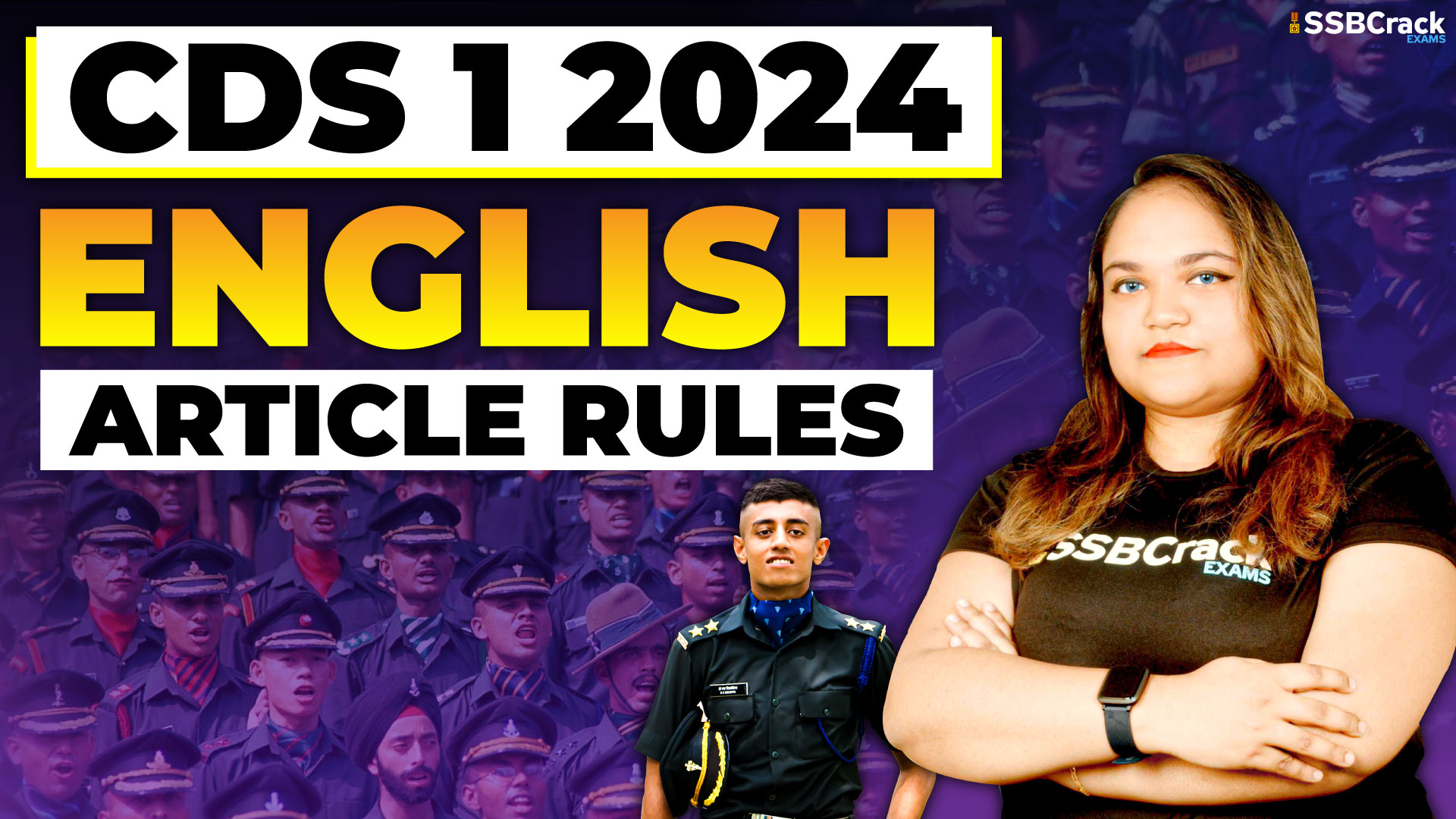The Combined Defence Services (CDS) examination stands as a formidable challenge for individuals aspiring to serve in the esteemed armed forces. The English section of the CDS exam places a significant emphasis on precise and effective communication, making it crucial for aspirants to master the usage of articles. This article aims to shed light on the importance of articles and highlight various errors that CDS aspirants should be aware of as they prepare for the examination.
- Understanding Articles:Articles, specifically “a,” “an,” and “the,” are integral components of English grammar that help convey specificity or generality in reference to nouns. These small words play a crucial role in providing clarity and precision in written and spoken communication.
- Indefinite Articles: “A” and “an” are used to refer to non-specific items or things.
- Definite Article: “The” is used to specify a particular item or thing.
- Common Article Errors:a. Incorrect Use of “A” and “An”: One common error involves incorrectly choosing between “a” and “an” based on the sound that follows the article, not just the first letter.
- Incorrect: She is an European diplomat.
- Correct: She is a European diplomat.
- Incorrect: He is captain army.
- Correct: He is the captain of the army.
- Incorrect: He is the one I was telling you about it.
- Correct: He is the one I was telling you about.
- Incorrect: I need a information.
- Correct: I need information.
- Incorrect: He is an CEO of the company.
- Correct: He is a CEO of the company.
- Importance of Articles in CDS Examination:a. Communication Precision: In the military, precise communication is crucial. Correct usage of articles ensures officers can convey information accurately and effectively.b. Language Proficiency Assessment: The CDS examination assesses candidates on language proficiency, including the correct use of articles, which impacts overall language scores.c. Critical Reading and Comprehension: Understanding articles is vital for accurately interpreting written instructions, reports, and briefings, contributing to effective comprehension.
- Strategies for Mastering Articles:a. Understand the Rules: Aspirants should familiarize themselves with the rules governing the use of articles, including when to use “a,” “an,” or “the.”b. Practice Regularly: Regular practice with exercises and sentence construction involving articles helps reinforce correct usage.c. Reading Actively: Actively engaging with military literature exposes aspirants to correct article usage in relevant contexts, aiding in a more intuitive understanding.d. Seek Feedback and Revision: Seeking feedback on written exercises and revising regularly contribute to improvement and retention of learned rules.
Conclusion:
In conclusion, a strong command of articles is indispensable for CDS aspirants aiming for success in the English section of the examination. By understanding the rules governing their usage and practicing in various contexts, aspirants can enhance their linguistic skills. Mastery of articles not only ensures success in the CDS examination but also prepares candidates for effective communication in the dynamic and challenging environments inherent to a career in the armed forces.







